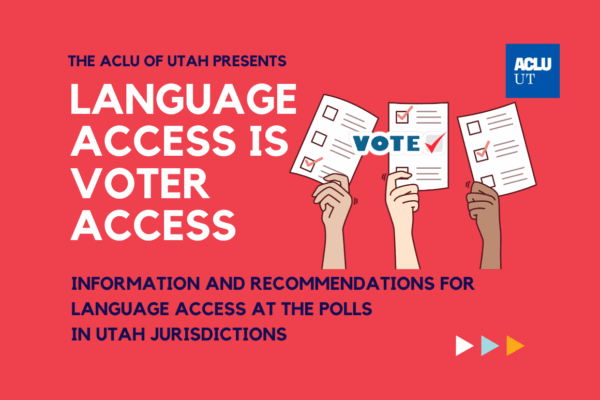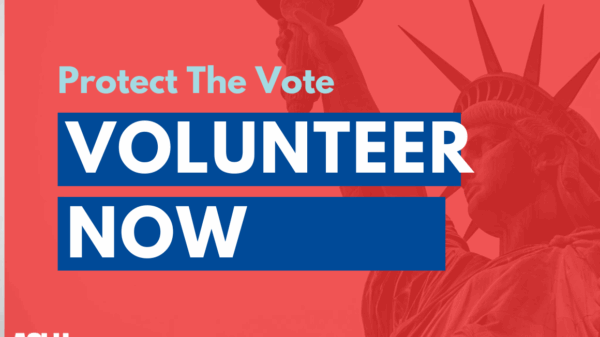INFORMATION AND RECOMMENDATIONS FOR LANGUAGE ACCESS AT THE POLLS IN UTAH JURISDICTIONS
Select a Scenario
Note on Terminology
You will see us use the terms “Indigenous,” “Native,” and “Indian” because they have specific meanings in certain frameworks like our legal system. At the ACLU of Utah, we prefer the more inclusive term Indigenous, which is why our work is called Indigenous Justice.
Section 203 of the Voting Rights Act
The Bureau of the Census uses its data to designate specific jurisdictions as “Section 203 jurisdictions” under Section 203. Section 203 jurisdictions must provide translated versions of instructions, assistance, materials, information, and other voting information available in English in the covered minority group’s language.
Section 203 jurisdictions are those that meet certain criteria related to populations of minority groups who speak languages other than English. A jurisdiction is covered under Section 203 when the number of United States citizens of voting age in a single language group within the jurisdiction:
- Is more than 10,000, or
- Is more than five percent of all voting age citizens, or
- On an Indian reservation, exceeds five percent of all reservation residents; and
- The illiteracy rate of the group is higher than the national illiteracy rate
Designated Section 203 Jurisdictions in Utah (Based on 2021 US Census Bureau data, Utah has two Section 203 jurisdictions.)
Based on 2021 US Census Bureau data, Utah has two Section 203 jurisdictions.
Section 208 of the Voting Rights Act
Section 208 allows voters experiencing blindness, disability, or the inability to read or write to receive assistance at the polls from any individual of their choice as long as the person providing assistance is not the voter’s employer, agent of their employer or an officer or agent of the voter’s union. Voters experiencing language barriers may obtain assistance through Section 208. People providing assistance are not required to be U.S. citizens, registered to vote, or of legal age.
Recommendations to Protect LEP Voters
The ACLU of Utah recommends that all jurisdictions in Utah take steps to implement and improve language assistance at the polls even if they are not required to do so as designated Section 203 jurisdictions. Below are simple recommendations that we encourage all jurisdictions in Utah to implement:
- Identify the prevalence of language needs in the jurisdiction through accurate demographic and language data.
- Accurately translate all written materials into languages that are commonly spoken within the jurisdiction other than English.
- Plan which language services will be made available to voters well in advance of the election.
- Conduct outreach efforts in all commonly spoken languages.
- Hire bilingual poll workers and volunteers to accommodate speakers of languages other than English.
- Ensure that poll workers are aware that certain individuals may receive assistance on their ballot from someone of their choice and do not impede this assistance.
- Train poll workers and volunteers on compliance with Sections 203 and 208 and on all language services provided.
- Obtain stakeholder input and feedback pertaining to language services at the polls from voters who speak a primary language other than English and community-based organizations and agencies working with these individuals.
Stay Informed
Sign up to be the first to hear about how to take action.
By completing this form, I agree to receive occasional emails per the terms of the ACLU’s privacy statement.
By completing this form, I agree to receive occasional emails per the terms of the ACLU’s privacy statement.


